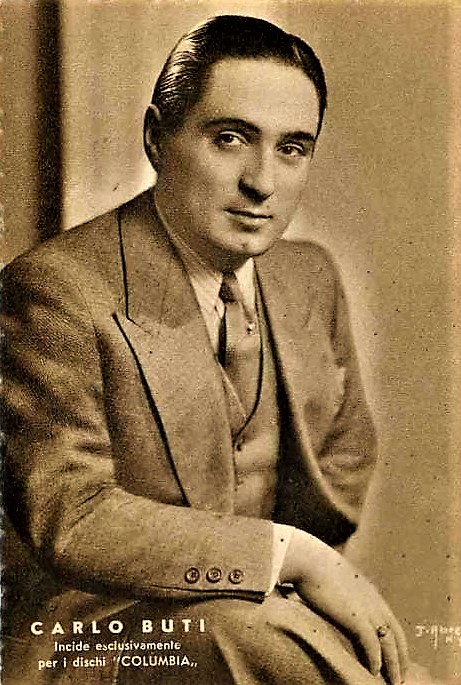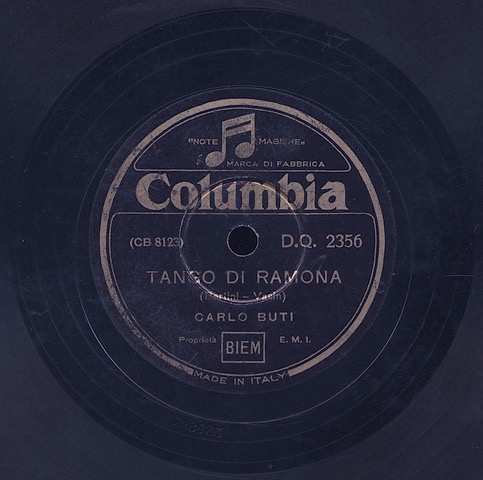His voice teacher was the same as Gino
Bechi's – Raoul Frazzi. But though Buti made a handful of aria recordings, the realm where he was king
was that of Italian song. His popularity in that field was beyond comparison. He is said to have recorded
1574 different songs.
Coming from a poor family, he had to leave school early and worked first as an unskilled laborer, then became a goldsmith. His
friends urged him to have his voice trained, and so he studied (briefly) with Frazzi.
In 1928, he got a contract to sing ten evenings at the Florence Cinema Apollo; his success was enormous, but he didn't yet dare
to rely on music for his living, and worked on as a goldsmith for two more years, or more precisely until he was hired for a
concert tour in theaters throughout Italy. In 1930, as well, he made his first discs. In 1931, he made his debut at the
Piedigrotta festival of Neapolitan songs, and in 1932 at the Sanremo song festival.
Very soon, he became Italy's first radio star. He was also (too) close to the Fascist regime, singing many of their propaganda
songs (Faccetta nera by Mario Ruccione was his most famous one). In October 1937, he made his US debut on Broadway (he
always gave concerts of Italian songs, and never appeared on stage, notabene); he stayed in America for six months, singing
many concerts throughout the country as well as on the radio. His return to Italy was very brief; in May 1938, he was back for
another US tour, until February 1939, this time.
His next tour outside Italy came only after WWII: in 1946, he went to South America for the first time, primarily to Brazil and
Argentina, where his success exceeded all expectations – in Buenos Aires, he sang a concert for an audience of 240,000!
He returned in 1947 and 1953. In 1948, he was back to the US (with concerts at Carnegie Hall and the Manhattan Center), and in
1949 toured Canada.
Buti retired in 1956; in his later years, he suffered (and eventually died) from Parkinson's disease.
Reference
Picture source

